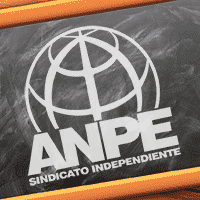In a significant step toward improving the quality of education, a competitive examination for entry into the Teaching Corps has been implemented, focused on a rigorous assessment of competencies through practical examinations. This new selection method seeks to stabilize the teaching sector, ensuring that only the best-prepared candidates with up-to-date skills enter the classrooms.
The stabilization process has been developed in response to the need to have well-trained teachers who are capable of facing the challenges of modern education. The introduction of practical tests in exams marks a notable difference from previous procedures, which in many cases focused on theoretical assessments. This new modality aims to measure not only the applicant's theoretical knowledge, but also their ability to apply it effectively in real teaching situations.
According to sources from the Ministry of Education, practical exams are designed to assess essential competencies, such as classroom management, adapting instructional materials to different student needs, and the ability to innovate in teaching methodology. Candidates must demonstrate their ability to design and deliver a complete class, incorporating diverse pedagogical tools and contemporary educational approaches.
The impact of this change on the selection system is expected to be considerable. With a more thorough assessment based on practical skills, the aim is to reduce turnover rates among the teaching staff and to increase the retention of qualified teachers in schools. The education authorities have stressed that the implementation of these tests is part of a broader strategy to raise the standards of public education and provide students with a quality education.
The candidates for the Teachers' Corps have received the news with a mixture of anticipation and nervousness. While many recognize the benefits of a more practical assessment, they also express concerns about the adaptability of the current training content to the new demands of the competition. In response, several training centers have begun updating their programs to include practical simulations and advanced techniques for educational management.
The stabilization process also addresses one of the most pressing issues in the field of education: the need for ongoing training for teachers. The new teachers selected through this competition will be required to participate in professional development programs, which will be monitored periodically to ensure a high level of updating and continuous improvement in their teaching practice.
Society watches this change with interest, aware that better teacher training will positively affect the education that future generations receive. Although the path to quality education is long and requires the joint effort of all the actors involved, the implementation of this concurso-oposición with practical tests represents a promising advance toward that objective.
Press release from ANPE Madrid.



